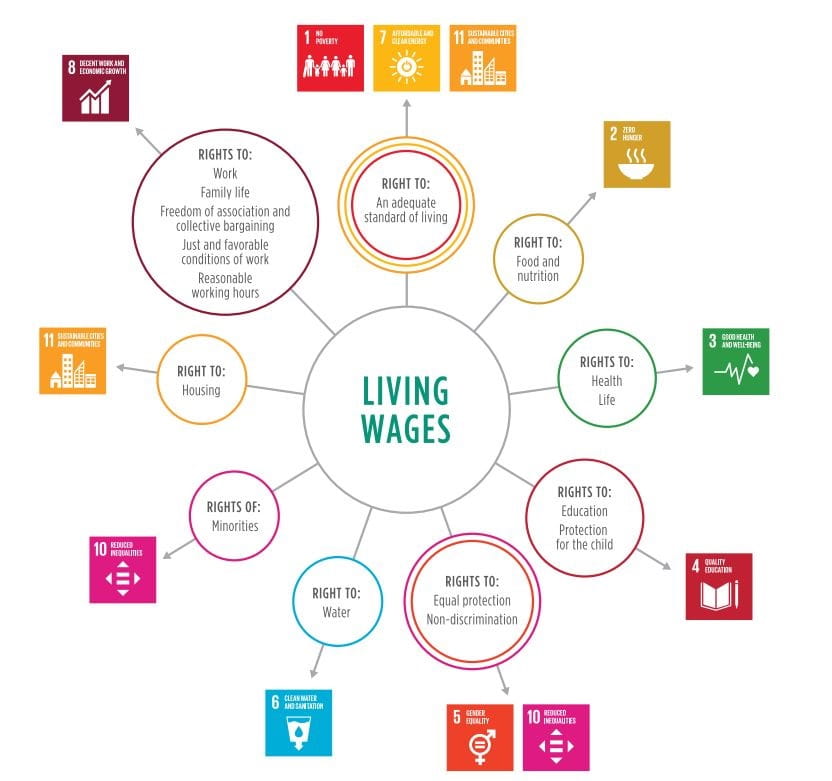Sustainability | ~ 3 min read
Making work pay

Employment that pays workers below the official poverty line has become a global issue, heightened by the recent cost-of-living crisis. With a focus on human rights in our engagement activities, we encourage more employers to adopt living wages to help address this issue.
While many people are familiar with the idea of a minimum wage, our view is that a living wage is better aligned with equitable employment. While minimum wages are defined mainly by national regulations and represent the minimum amount of remuneration that an employer is required to pay wage earners, based on work performed during a given period, living wages are often higher. They are defined as “the wage level that is necessary to afford a decent standard of living for workers and their families, taking into account the country circumstances and calculated for the work performed during the normal hours of work”.1
Paying fair
We believe companies have a critical role to play in understanding and assessing living wages across their value chain, as outlined in our previous blog post. The World Benchmarking Alliance Social Benchmark 2024, which assessed 2,000 companies, highlighted some of the issues:
- Only 4% pay their direct employees a living wage
- Less than 1% have living wage targets
- Only 3% support the payment of a living wage in their supply chain.2
This last point is why collaboration between companies, suppliers and clients is necessary to address this issue – particularly for large global brands whose supply chains stretch far and wide. This is illustrated in the PLWF assessment of 31 garment and footwear brands on improving living wages, where Puma was ranked first as a Leader, with Adidas and H&M ranking in the second category of Advanced.
The timeframe to achieve the 17 UN Sustainable Development Goals (SDGs), adopted by world leaders in 2015, ends in 2030. Addressing living wages across global supply chains would support several of the UN Sustainable Development Goals, as shown below.
Rights related to living wages and links to UN Sustainable Development Goals*

Source: Shift Project – The Human Rights Opportunity, July 2018
*AllianzGI supports the Sustainable Development Goals (SDGs).
Progress by working together
In 2024, AllianzGI joined the Platform Living Wage Financials coalition3 of 24 financial institutions to promote these issues among selected investee companies. Starting with the extensive supply chain of the garment and footwear sectors, coalition members use a dedicated assessment methodology to engage with companies. The methodology considers definitions, policies, assessments, reporting among other factors related to living wage. The coalition also amplifies the impact of policies and initiatives to push for systemic change in fair wage standards. This first year of engagement demonstrated a growing interest across this sector to improve living wages practices. Positive developments include the extension of responsible purchasing practices and the promotion of “freedom of association” rights at suppliers, permitting employees to meet and associate with each other.
However, there is still a lot of work to do, especially in terms of improving transparency around quantitative indicators used to monitor wages and closing living wage gaps. Championing equitable pay will continue to be a focus for our thematic engagement under inclusive capitalism.
1 International Labor Organization definition of minimum wages and living wages
2 Social Benchmark 2024 Insights Report
3 https://livingwage.nl/






